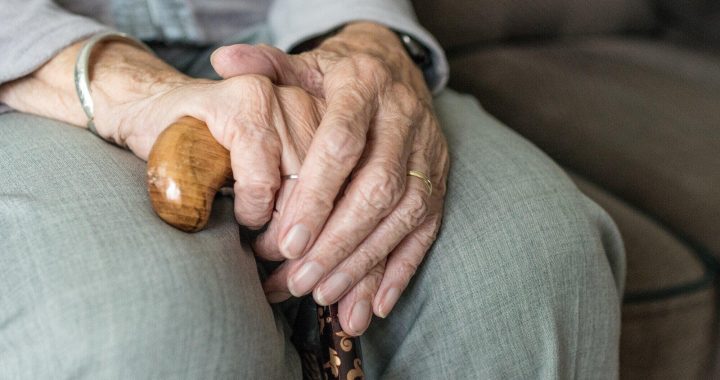
The Heart of Healthcare: Why Nurses Are the Backbone of the Medical System
Every time someone walks into a hospital, there’s a nurse ready to help. Whether it’s taking vitals, offering emotional support, or coordinating with doctors, nurses form the front line of care. They’re not only essential to medical routines but also provide humanity when things feel uncertain. From birth to end-of-life care, nurses show up—ready, steady, and knowledgeable. Their work bridges science and compassion, technology and touch. They remember your name when others might forget. More than any title or degree, it’s their consistent presence and profound impact that anchor the entire system. Without nurses, healthcare would simply fall apart.
A Constant Presence in a Shifting Landscape
Nurses don’t clock in and out of moments—they remain steady during chaos and calm alike. Hospitals are fast-paced, always evolving environments, yet nurses offer consistency. They rotate through long shifts, holidays, weekends, and nights, ensuring that patient care never stops. Their reliability forms a foundation that holds even the most advanced hospitals together. In emergencies, they act quickly. In long-term care, they offer continuity. While medical breakthroughs often grab the spotlight, it’s the nurse by the bedside who turns treatment into healing. Every successful outcome rests, in part, on their ability to keep systems running and patients feeling seen.
Knowledge Meets Compassion
Nursing blends technical mastery with emotional intelligence in a way few other professions can. These professionals handle IV lines and medication doses with the same finesse they use to calm an anxious family member. That rare combination transforms a clinical experience into a human one. Many choose this path because they care deeply. But that care requires training. Today, programs like an online ABSN degree help aspiring nurses develop both the scientific knowledge and the soft skills needed to succeed. Whether they’re updating a patient chart or advocating for a treatment change, nurses make every moment of care count.
Advocates for Patients, Always
Doctors prescribe, surgeons operate, but nurses monitor. They don’t just follow orders—they interpret them through the lens of a patient’s day-to-day condition. If something seems off, a nurse is often the first to notice and speak up. Advocacy forms the core of their work. Nurses listen closely to what patients say—and don’t say. They read between the lines, catching subtle signs of distress or decline. They help patients understand complicated procedures and ensure informed consent. They explain, reassure, and translate medical jargon into plain language. For many patients, their nurse becomes their voice when they feel unheard.
Educators at the Bedside
Nurses don’t just treat—they teach. Whether they’re instructing a new mother on how to swaddle or walking a diabetic patient through insulin management, nurses serve as day-to-day health educators. Their teaching helps patients make informed decisions and adopt habits that lead to lasting wellness. And unlike one-time consultations, nurses reinforce learning over multiple interactions. They simplify complex information, tailor it to individual needs, and make sure instructions stick. This continuous education prevents readmissions and supports healthier outcomes. Nurses also educate families, empowering them to become part of the healing process. They offer clarity in times filled with confusion.
Emotional Anchors in Tough Times
Hospitals often mean stress, fear, and uncertainty. In these moments, nurses provide more than just clinical care—they offer emotional grounding. They hold hands during difficult diagnoses and stay present during long nights. Nurses create space for grief, hope, and healing. Their ability to connect on a human level builds trust. They comfort children during shots, support elderly patients with patience, and bring calm to worried parents. They stay calm under pressure and extend empathy without burning out. Patients might forget procedures, but they rarely forget how a nurse made them feel. That emotional strength forms an invisible but vital thread.
Coordinators in Complex Systems
Healthcare doesn’t run on instinct-it runs on coordination. Nurses often act as the central point connecting doctors, lab techs, physical therapists, and patients. They schedule follow-ups, track tests, and ensure communication flows between departments. Without them, gaps form. A nurse ensures that no detail falls through the cracks. They juggle charts, medications, and conversations while always keeping the patient’s best interest front and center. When a treatment plan gets complicated, the nurse ensures each piece moves smoothly. Their ability to multitask without losing focus plays a huge role in preventing delays, reducing errors, and improving overall patient outcomes. However, the sheer volume of administrative tasks can sometimes divert nurses from direct patient care, impacting overall efficiency. Services like My Mountain Mover virtual receptionist provide expert help with HIPAA-compliant support, handling everything from scheduling to patient inquiries.
Adaptability in Every Environment
No two shifts look the same. Nurses work in ICUs, pediatric wards, emergency rooms, surgical units, clinics, and home settings. They pivot constantly—handling trauma cases one hour and comforting a patient’s family the next. Their versatility allows them to respond to any situation, from minor ailments to life-threatening emergencies. They keep calm when chaos erupts and stay focused when time is short. Nurses learn to adapt not only to patient needs but also to shifting technologies, protocols, and healthcare laws. This ability to adjust without losing empathy makes them incredibly valuable in any clinical environment, rural or urban.
Public Health Contributors
Nurses do more than bedside care. They lead vaccination drives, run community health programs, and provide education in underserved areas. Public health nursing combines clinical skills with outreach and education. During crises like pandemics or natural disasters, nurses often serve as the frontline response. They assess risks, guide prevention efforts, and help people navigate resources. Their presence in schools, shelters, and community centers extends healthcare beyond hospital walls. Through screenings, counseling, and education, they promote healthier lifestyles and reduce preventable diseases. Nurses strengthen not only individual wellness but the overall health of entire communities with consistency and dedication.
Nurses don’t just support the medical system — they hold it up. Their skill, resilience, and heart make healing possible, not just through treatments, but through presence. They offer comfort during fear, clarity during confusion, and advocacy when patients need a voice. With evolving healthcare needs, nurses remain the unwavering constant. They take on more responsibility than ever, guided by both science and humanity. Whether you meet them in a clinic, a home, or a hospital corridor, they carry the same strength and compassion. The world may often overlook them, but in every life they touch, they leave a mark that never fades.

























